Good morning, crime dogs. It’s been a while since I tackled a First Pager but this one intrigued me. It’s a mystery, the submitter tells us. And within the mystery are things we can unearth, to learn, as always. Catch you on the flip-side.
By PJ Parrish
If Only Twice
Cora Jean sat in her new apartment, piled high with boxes of her belongings, wondering where to start and asking herself why she was even here. The musty odor of damp cardboard filled her lungs adding to her melancholy. She clenched her hands, stood up and paced the floor. “The boxes, the boxes,” she said. “The never-ending pile of smelly boxes.” She kicked one. Her eyes teared up. She reached into her jean pocket and pulled out a box cutter. She stared at her wrist. Her hand trembled. She pushed the button extending the blade. The shiny blade. The inviting blade. The mesmerizing blade. She inhaled, held her breath and closed her eyes.
“Be careful with that boxcutter.” A voice from behind her said.
She twisted around, tripped over a box and dropped the box cutter. The stranger caught her before she hit the floor. He helped her to a chair.
“Those things can be tricky to use,” the stranger said.
“Who are you?”
“Your door was ajar. It looked as though you might need help.”
“I know how to use this.” She picked up the boxcutter and held it tightly in her hand.
“Who are you?”
“I’m Lew. I was checking on someone in apartment 12 B.”
“You have friends living in this building?”
“Mr. Whitley in 12 B can be cantankerous at times but, most are friendly. Here, give me that.” Lew reached for the box cutter, gently took it from her hand and retracted the blade.
“I know how to use that thing.”
“I will help you open your boxes.” He put the box cutter in his back pocket. “Let’s see, you have five boxes. Where do you want to start?”
She rolled her eyes. “Five boxes! Where did you learn to count?”
“I see only five. How many are there?”
She turned her head slowly examining every corner of the apartment. She moved to the bedroom door. On the bed were two boxes.
“There are a bunch in here. See you’re wrong.”
“Okay, I’m sorry. I didn’t look in the bedroom.”
“There are so many I don’t know where to start.”
“Let’s start with the living room.”
“But they’re so big.”
“You can do it. One box at a time. I’ll help you.”
“The living room.” She compressed her lips. “Um, the living room maybe a good place to start.”
“Yes, the living room,” Lew said.
_____________________
As I said, this one interested me. There are some issues with it, especially with the critical opening paragraph and we’ll get to those. But let me say that I think this writer has potential and that this set-up scene can, with some work, make for a good opening. This is a great example of a submission that is pretty good but with some effective tweaking, can shine. First, what I like:
We know who were dealing with from the get-go. The two characters interacting here are named and their voices are distinct from each other — Cora Jean timid and troubled and the interloper Lew mysterious and vaguely creepy in his earnestness to help. I also like that the writer chose to place us directly in a disruptive situation — Cora feeling lost and even suicidal in a new home and confronted by a strange man. I mention this because many writers, dealing with a troubled character like Cora, would have given us paragraphs or a whole scene/chapter of her sitting amid her boxes moping, thinking, fretting and/or remembering what brought her to this point.
But no. This writer rightly drops us into the messiness and saves the backstory and “why” for later. If nothing else, that is a lesson to take away here. So, dear writer, you’re on the right road.
But…you can do better. The opening scene can be better. You can hook your reader with more tension. None of it requires major surgery. It’s a matter of little things adding up to big changes. Let me make a few suggestions.
Take a hard look at that first paragraph. It’s way too long and you’ve crammed way too much info and emotion into it. I have a hunch you felt it necessary to compact everything into one graph because Cora Jean is alone at this point. And maybe if you just kept going, in a sort of stream of consciousness, it would feel more urgent. But the effect is just the opposite. The opening line and graph should be a PROMISE of the mystery to come. A hint is always more powerful than a hammer.
And let’s talk about that box cutter. I love it! It’s so powerful but you missed an opportunity to make it work on two levels. (More to come on that). A box cutter is one of those “homey” but nasty gadgets. It’s so useful and well designed. Yet inside is hidden an awful weapon. One slip and your Ikea bookcase looks like blood-spatter scene. (Been there, cut that)
So Cora has a box cutter: Is it a benign tool to open something — or is it a deadly means to close something — i.e. her life. Chilling.
Yet you’ve buried this great detail amid the physical choregraphy of the opening graph. Let me suggest how powerful simple paragraphing can be:
Cora Jean sat in her new apartment, piled high with boxes of her belongings, wondering where to start and asking herself why she was even here. The musty odor of damp cardboard filled her lungs adding to her melancholy.
“The boxes, the boxes,” she said. “The never-ending pile of smelly boxes.”
Her eyes teared. She stood up and kicked a box. She reached into her jean pocket, her fingers curling around the peice of metal. She pulled out the box cutter and stared at it.
She raised her left arm and looked at her wrist. She pushed the button on the box cutter, extending the blade.
The shiny blade. The inviting blade. The mesmerizing blade.
Good stuff. But it can be even better. Some suggestions to work on:
Try harder to come up with a more compelling opening line. “Cora Jean sat…” is so passive and blah. And “her new apartment” and “her belongings” are superfulous. It is implied by the packing boxes.
Also, “wondering where to start and asking herself why she was even there” is you, the writer, telling us her state of mind, rather than showing the reader through her thoughts and actions. You need a bit of description! The smell of damp cardboard is good, but think harder about using Cora’s other senses to give us a FEEL for where she is, physically and mentally. Don’t tell us she feels “melancoly.” SHOW US. Something like:
The room was dark, yet she knew it was only just past three. Shadows moved across the gray walls. Just the reflection of the bare tree branches outside the window, yet she felt like they were fingers reaching in to touch her.
The room smelled stale, not just from the musty cardboard boxes piled all around her, but from something else, like an old woman’s perfume. She stared at the moving boxes, wishing she had remembered to label them. She had been in such a hurry, she had no idea what was in them. Her eyes welled with tears, as the thought came back to her again.
I have no idea of what I am doing here.
Use descrption and her sensory prism to show us her mood and emotions.
After you’ve established Cora’s emotions more vividly, then it’s time to move on to the action — the introduction of the mysterious stranger. You’ve done a pretty good job with this part. Nice dialogue, but watch that you don’t waste it on repetition or unecessary chattter. And make sure it is logical in its progression. I rewrote this a little:
“Be careful with that boxcutter.” A voice from behind her said.
She twisted around, tripped over a box and dropped the box cutter. “Who are you?”
“I’m Lew. “Your door was open and –”
She grabbed the boxcutter from the floor and held it out. “I know how to use this.”
He took one step back. “I was here to check on someone downstairs and walked by your door. You looked like you needed some help.”
“You have friends living in this building?”
He nodded but his eyes were still on the boxcutter. “Mr. Whitley in 12 B. He’s cantankerous at times but most folks here are friendly.”
He paused, seeming to stare at the piles of cardboard boxes. “You look like you could use some help with those.” He nodded to the boxcutter in her hand. “I know how to use that,” he said with a smile.
Cora Jean hesitated then retracted the blade.
I changed the dialogue up a little to stress a couple things. First, I don’t think it’s believable that Cora, being so sad and stressed at first, would allow a strange man to simply take the blade from her. It also makes her look weak. Why not let her keep it as she warily retreats (retracts the blade).
And this is the kicker: Note that I tried to make the line “I know how to use that” work harder for your characters. It now has a double meaning. Is Lew a good samaritan or a slasher? Well, read on to find out…
Also, one last point about your dialogue. You know how to craft it. But make it work harder. The dialogue you have after the blade thing is just taking up space. It is doing nothing to advance your scene or add to the tension. Good dialogue does one of two things: Says something unique or says something uniquely. Sure, sometimes people have to say mundane things to move your story along. But try hard not to use it in this fashion. Use simple narration instead: Cora knew there were six boxes in the living room and at least three more in the bedroom. She slipped the boxcutter back into the pocket of her jeans. “Some of them are heavy,” she said softly. “Yeah, I could use some help.”
So, good start, writer. Rework that opening paragraph to squeeze as much tension-juice out of it as you can. Make your dialogue work harder. Use some description to enhance mood. But based on this, I would read on, if for no other reason than to find out what Lew is up to. Thanks for letting us read your work.



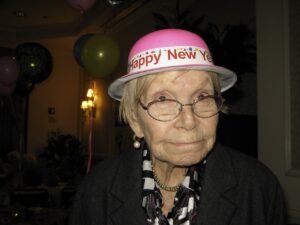 See this woman? I’m sure you have. She’s been featured in a slew of ads. Aw, what a cute old lady.
See this woman? I’m sure you have. She’s been featured in a slew of ads. Aw, what a cute old lady.


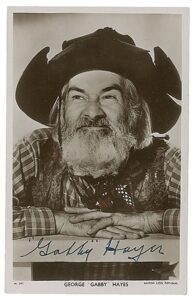


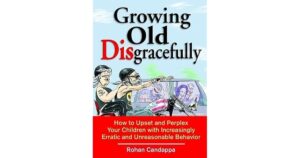
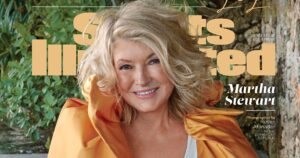

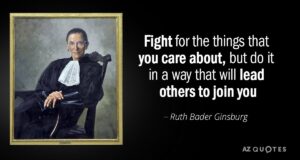
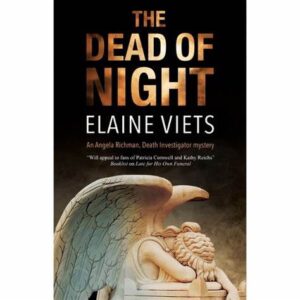
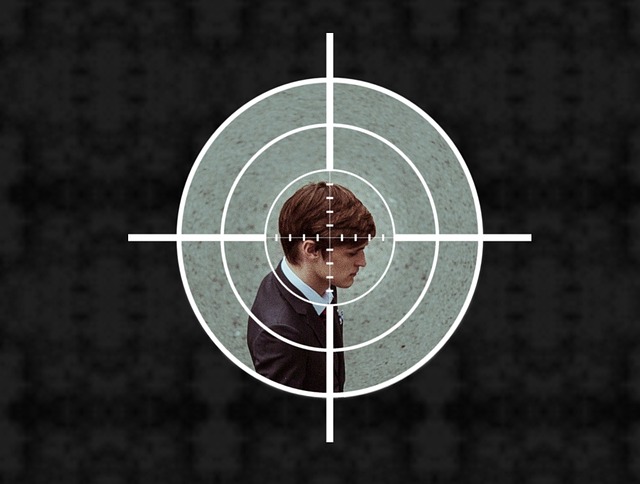
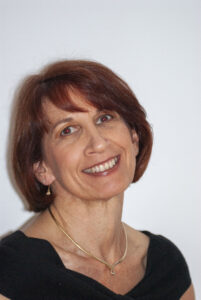 When I had my first contract (for
When I had my first contract (for 





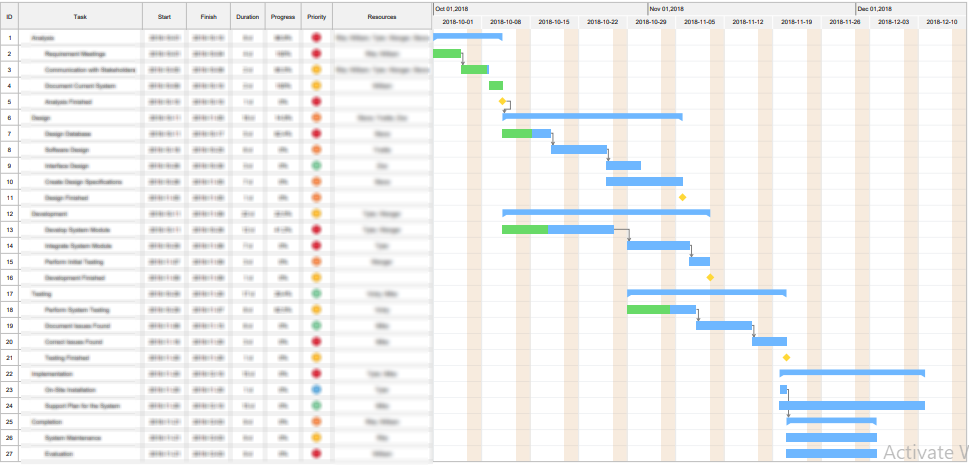
 Cassie Deakin has one item on her to-do list: find out why two ex-cons attacked and almost killed her beloved uncle. But can she complete the task before she becomes the next victim?
Cassie Deakin has one item on her to-do list: find out why two ex-cons attacked and almost killed her beloved uncle. But can she complete the task before she becomes the next victim?
 Author Leonard Shlain spent years exploring da Vinci’s work and analyzing what made him so outstanding. In the book
Author Leonard Shlain spent years exploring da Vinci’s work and analyzing what made him so outstanding. In the book  For most of his life, the European world recognized Leonardo da Vinci as a painter. In reality, da Vinci wasn’t a prolific painter. He painted sporadically and nominally as a side-line commission. Art experts at Christie’s auction in New York estimate that over 80 percent of Leonardo da Vinci’s paintings were lost over the years. Today, there are only 15 verified da Vinci paintings in the world including Mona Lisa, The Last Supper and Annunciation. Salvator Mundi sold in 2017 for $450.3 million US.
For most of his life, the European world recognized Leonardo da Vinci as a painter. In reality, da Vinci wasn’t a prolific painter. He painted sporadically and nominally as a side-line commission. Art experts at Christie’s auction in New York estimate that over 80 percent of Leonardo da Vinci’s paintings were lost over the years. Today, there are only 15 verified da Vinci paintings in the world including Mona Lisa, The Last Supper and Annunciation. Salvator Mundi sold in 2017 for $450.3 million US. Consciousness is a whole different matter. Conventional science has no grip on what human consciousness—or any form of consciousness—really is because it’s non-tangible and can’t be defined within current terms. Because consciousness is slippery, it’s not fundable. There’s no money in it. You can’t measure to monetize it. So consciousness study is left to individual groundbreaking leaders like
Consciousness is a whole different matter. Conventional science has no grip on what human consciousness—or any form of consciousness—really is because it’s non-tangible and can’t be defined within current terms. Because consciousness is slippery, it’s not fundable. There’s no money in it. You can’t measure to monetize it. So consciousness study is left to individual groundbreaking leaders like  “Leonardo da Vinci’s left and right brain hemispheres were intimately connected in an extraordinary way. Because of a large and uniquely developed corpus callosum, da Vinci’s left and right sides constantly communicated and kept each other in the loop on observations and creative options. Each brain side knew what the other was doing, and this gave da Vinci’s mind unprecedented and unrestricted freedom to observe, understand and create.
“Leonardo da Vinci’s left and right brain hemispheres were intimately connected in an extraordinary way. Because of a large and uniquely developed corpus callosum, da Vinci’s left and right sides constantly communicated and kept each other in the loop on observations and creative options. Each brain side knew what the other was doing, and this gave da Vinci’s mind unprecedented and unrestricted freedom to observe, understand and create.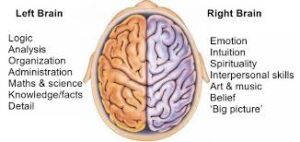 The
The